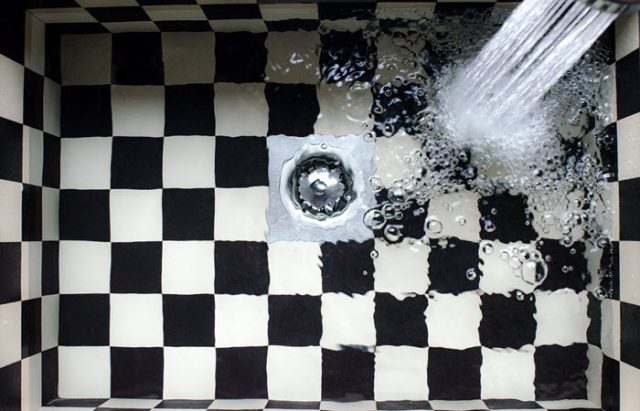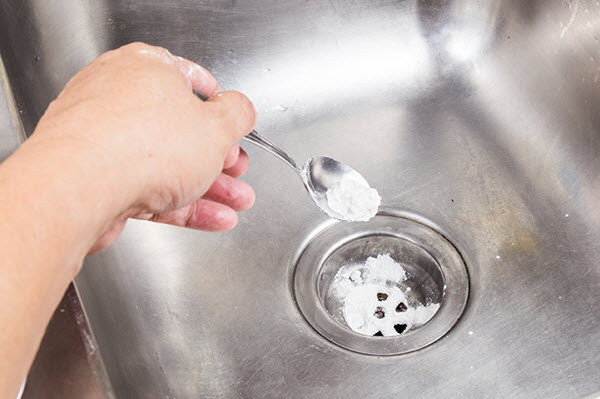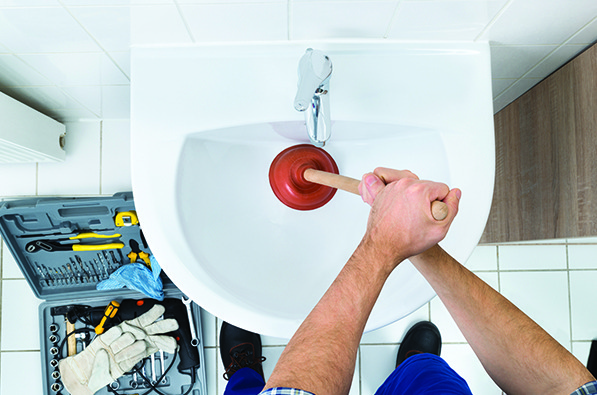Genius Tricks for Cleaning Your Clogged Drain
By Rebecca Hill
March 6, 2019 • Fact checked by Dumb Little Man

A clogged drain can be a major inconvenience, an eyesore, and can cause pungent odors at home. If your pipes have become severely clogged, then you also run the risk of them bursting. Once that happens, you'll have to deal with severe water damage and flooding, which ruin your furniture and appliances.
To avoid such issues from transpiring in the first place, you will need to unclog your pipes as soon as possible. While you can call a handy plumber to take care of your drain cleaning, you also have the option to do it yourself.
Here, we will provide some genius tricks to help you learn how to clean a clogged drain.
Simple Prevention Tips
The first thing to focus on is what caused the pipes to become clogged in the first place. Once you have identified the source of the problem, you can quickly solve it and prevent it from becoming a problem in the future as well.
Some of the most common causes of clogged pipes are hair, soap scum buildup, and food waste.
For instance, if hair is the cause, then you should place a hair guard over your drains before you shave or shower. The guard should capture all the hair. As long as you clean the guards regularly, you shouldn't have to worry about hair clogging your drains anymore.
As for soap, soap products are made with fat or grease in most cases. When water minerals mix with soap fat, soap scum is formed. It's a very hard residue that can easily clog pipes and stain bath fittings as well.
If soap is the cause of your clogging issues, then you may want to try switching soaps or using alternatives. To care for soap scum buildup, we suggest consulting a professional for pressure cleaning if DIY remedies are not doing the job.
Note that food waste should never, under any circumstances, be thrown into a drain. In fact, even if you have your own garbage disposal, it should not be used in order to eliminate food waste.
Instead, we recommend that you use a composting pile to store your food waste products. For instance, you can throw your coffee grounds and tea leaves into the compost pile as tea leaves and coffee grounds won't actually break down with time.
Oil and grease will also cause your pipes to be blocked as they will solidify with time. As such, you should use paper towels to absorb the oil and/or grease and then toss the soaked paper towels into the compost pile.
Conquer the Clog With These Tricks
The most simple way to fix a slow drain is to simply use some boiling water. It won’t cost you anything and is easy to prepare and use. This method is great for flushing out light blockages in areas such as the kitchen sink or bathtub. It is important to note that this method is most effective on metal pipes
Those who are looking for a more powerful solution but are hoping for a natural remedy may find that adding vinegar, lemon juice, baking soda, borax or salt — or some combination of the aforementioned — to the boiling water can increase its ability to break down these light blockages.
Though a common home remedy is mixing only baking soda and vinegar together to clear clogs, others have argued that these two ingredients neutralize each other. They may not as effective as mixing with boiling water.

Another great ingredient to mix with boiling water to clear those pesky grease-based clogs in the sink, toilet or tub would be dish detergent. It can break down fatty materials and can help break down the buildups on your pipes.
Or you can try using your shampoo.
It’s great for unclogging a toilet. Add a few drops of shampoo into the toilet bowl, then pour in a bucket of hot water. Just let the shampoo and hot water sit for ten minutes. Repeat this process again for a better result.
Another genius trick for unclogging your toilet is the plastic wrap technique. Simply cover your toilet bowl completely with plastic wrap. With your hands, press firmly on the plastic wrap: the wrap will create a suction effect that will unblock the toilet!
In some situations, you can also use a wire coat hanger to fix the clog. Most people do have a wire coat hanger at home to spare. This can be straightened out and wrapped at the end with a rag to prevent damage. Push one into clogged toilets or drains to push clogs through.
Conventional Methods

As great as these home remedies may be, the tricks don’t get the job done sometimes. And when that happens, we need to turn back to the more conventional methods. There’s nothing wrong with that!
In some cases, a plunger will do the job you need. However, it has to be the right type of plunger in order for it to effectively unclog your pipe. By using compression and the force of suction, the right plunger and technique should be able to fix most basic clogs.
Another conventional method is a plumber’s snake, which works the opposite way that a plunger works. We would recommend a plumber’s snake to take care of deep drainpipe clogs because of their substantial length.
As for organic-based clogs, an enzyme solution can be used to take care of slow draining bathroom and kitchen drains.
The Next Step
If the clog or blockage remains after applying light to medium force, then it is time to call in a professional. If you use excessive force, your pipes may burst. Moreover, critical clogs must be taken care of as soon as possible. The safest and most effective way to do so is to call a professional drain cleaning company.
See Also: Piping Ain’t Easy! 5 Things To Keep In Mind Before Hiring A Local Plumber
Rebecca Hill
Rebecca Hills is the community manager at Oegema, Nicholson & Associates. She loves to write about home security and home improvement. She leverages her knowledge to educate people for keeping their homes safe.


